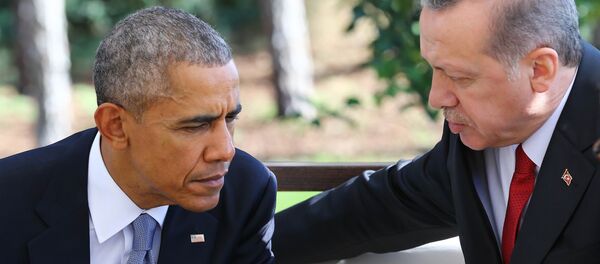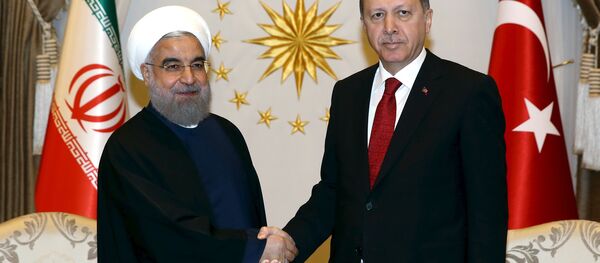Kurtulmus also noted that other stakeholders have been unable to come up with a working mechanism that would stop the bloodshed in the war-torn Arab country.
"Not a single country, including us, has been capable of devising an efficient strategy to resolve the Syrian conflict. I have repeatedly said this for many years. I wish that a working approach was devised earlier. I hope that the solution that Syrian people will accept will be devised soon and that it will not be forced onto the country from outside," he said.
Kurtulmus also mentioned President Bashar al-Assad, saying that Russia is unlikely to link its strategy in Syria to a single individual. Russian officials have previously said that they had no preconditions with regard to Assad, emphasizing that the Syrian people are the only ones who have the right to decide the fate of their country and chose its leader.
For its part, Turkey's previous foreign policy strategy towards Syria focused on Assad's immediate removal from office. The country's new prime minister, Binali Yildirim, has called for a less rigid approach to their neighboring country, saying that Ankara wanted to foster amiable relations with Syria following a years-long cold spell.
Earlier this week, Yildirim unveiled a road map to resolve the Syrian crisis that comprised three key components. Firstly, the country must retain its current borders. In other words, the Turkish leadership will make every effort to prevent the Syrian Kurds from gaining greater autonomy. Ankara considers all Kurds, regardless of where they live, a threat to its security and stability.
Secondly, Syria's future political structure, according to the Turkish prime minister, will not be sectarian in its nature. "Since there will be no sectarian structure, this also means that Assad will not be there in the long-run," he said.
Thirdly, Yildirim expects Syrian refugees who fled to other countries to escape the bloodshed to return home. Approximately 3 million Syrians are living in refugee camps in Turkey, with many using it as a transit country on their way to Europe.






